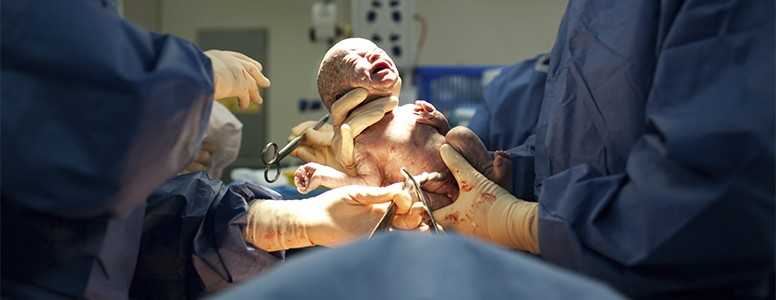American researchers have found that undergoing cesarean delivery may lead to an increased risk of obesity among offspring, which could also increase the risk of type 2 diabetes later in life.
Scientists from the Harvard TH Chan School of Public Health in Bosto, Massachusetts, estimate that babies delivered by cesarean section – also known as C-section – are 15 per cent more likely to become obese in childhood than those born naturally.
The study findings, published online in the journal JAMA Pediatrics, indicate that this increased risk associated with cesarean delivery as opposed to vaginal birth may also persist through adulthood.
The researchers also discovered that individuals born via cesarean delivery were 64 per cent more likely to be obese than their siblings delivered through the mother’s natural pathways.
In addition to that, babies born via vaginal birth among women who had undergone a previous cesarean delivery had 31 per cent less chance of becoming obese compared to those born by repeat cesarean procedure.
Currently in England, the rate of cesarean sections is 26.2 per cent with one in every four to five pregnant women in the UK undergoing them, which can be due to old childbearing age or obesity.
Scientists already knew of some risks to the mother and newborn with cesareans, and these findings suggest that the risk of obesity in offspring could be another factor to consider in the absence of a clear medical or obstetric indication.
Until this study, existing research on the association between obesity and cesarean birth lacked detailed data to establish causal effect.
Here, lead investigator Jorge E. Chavarro and his colleagues examined 16 years’ worth of data from more than 22,000 young adults in the Growing Up Today Study (GUTS) followed up from childhood through early adulthood to age 20 to 28 years.
The participants, of whom 4921 (22.3 per cent) were born by cesarean delivery, answered survey questions every year or two from 1996 to 2012.
After controlling for potential confounders, such as maternal age at delivery, pre-pregnancy body mass index (BMI), birthweight and offspring gender, the association between risk for obesity and cesarean was attenuated but still significant.
Given that all the other obesity risk factors, including genetics, are largely the same for each sibling, Professor Chavarro believes that the type of delivery is what determines whether a child will become obese or not.
However, researchers did not provide any information on offspring microbiota which, several studies have show, can be influenced by exposure to the mother’s own gastrointestinal microbiome via vaginal birth and decrease the risk of obesity.
At any rate, cesarean deliveries remain a necessary and lifesaving procedure in many cases, especially in women who have gestational diabetes, pre-eclampsia, hypertensio, high BMI, or history of a previous cesarean delivery.
What's new on the forum? ⭐️
Get our free newsletters
Stay up to date with the latest news, research and breakthroughs.









